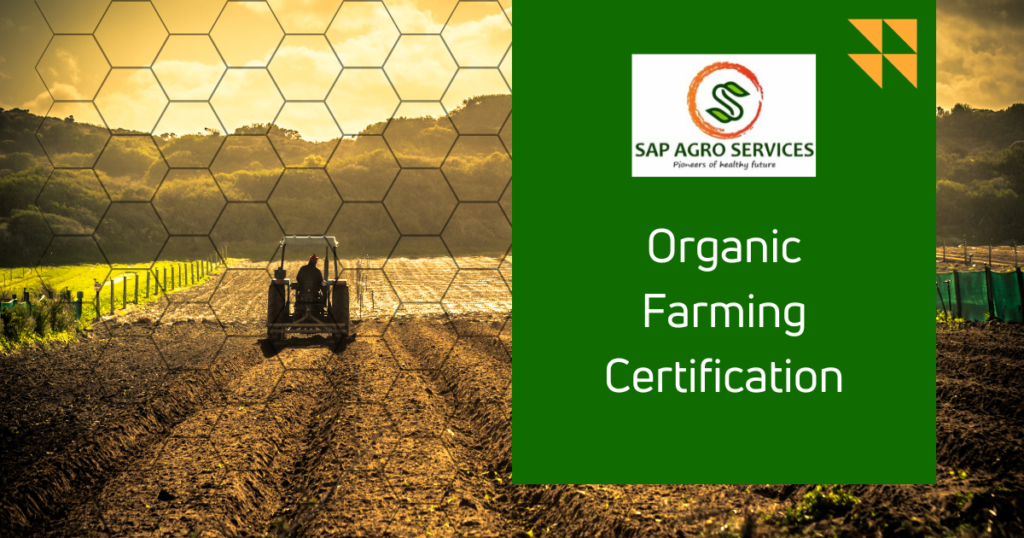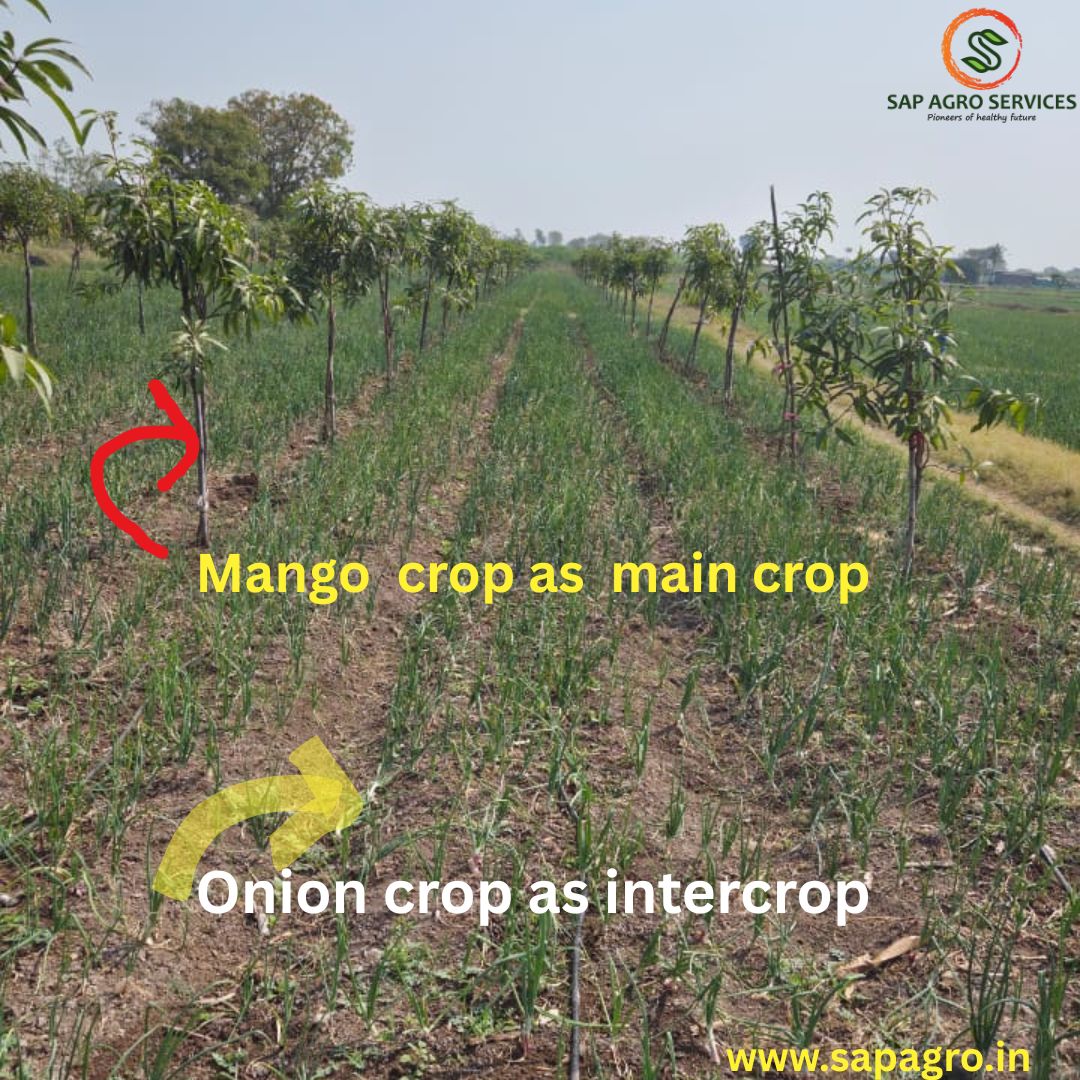Introduction:
In recent years, the demand for organic products has witnessed a significant surge as people become more conscious of their health and the environment. India, with its rich agricultural heritage, has embraced organic farming as a means to achieve sustainable agriculture and cater to the growing demand for organic produce. However, to ensure the authenticity and integrity of organic farming practices, certification plays a crucial role. In this blog, we will delve into the world of organic farming certification in India, exploring its significance, certification bodies, and the process involved.

The Significance of Organic Farming Certification
Organic farming certification serves as a verification mechanism that assures consumers that the produce they purchase has been cultivated using organic methods, devoid of harmful chemicals and genetically modified organisms (GMOs). It provides a reliable guarantee that the food is healthy, environmentally friendly, and adheres to the principles of sustainable agriculture.
Certification Process
The organic farming certification process involves several steps to ensure that farms meet the required standards. While specific procedures may vary among different certification bodies, the following outline provides a general overview:
Application: The farmer interested in organic certification submits an application to the chosen certification body, providing details about the farm, crops grown, and farming practices employed.
Documentation: The farmer prepares and maintains detailed documentation, including records of inputs used, seed sourcing, soil management practices, pest and disease management, and harvest and post-harvest practices.
Inspection: A trained inspector appointed by the certification body visits the farm to assess its compliance with organic farming standards. The inspection covers various aspects, such as land history, neighboring farms, soil quality, crop rotation, pest management, waste management, and recordkeeping.
Evaluation: The inspector submits a report to the certification body, including observations and recommendations. The certification body evaluates the report to determine whether the farm meets the organic farming standards.
Certification Decision: Based on the evaluation, the certification body decides whether to grant organic certification. If compliant, the farm is issued an organic certificate, valid for a specified period.
Benefits of Organic Farming Certification
Obtaining organic farming certification in India brings numerous advantages for farmers, consumers, and the environment:
Market Access: Certified organic farmers gain access to a niche market that demands organic produce. Certification enables farmers to fetch premium prices for their products and increases market opportunities.
Consumer Trust: Organic certification builds trust among consumers who seek assurance that the food they consume is grown using sustainable and environmentally friendly practices. It helps consumers make informed choices and supports their preference for healthier and safer food options.
Environmental Preservation: Organic farming certification promotes environmentally sustainable practices by prohibiting the use of synthetic pesticides, chemical fertilizers, and GMOs. It encourages crop rotation, natural pest control methods, and soil and water conservation, contributing to the preservation of biodiversity and the long-term health of ecosystems.
Health Benefits: Certified organic produce is free from synthetic chemicals, pesticides, and genetically modified ingredients, which can have harmful effects on human health. By choosing organic products, consumers can reduce their exposure to potentially hazardous substances and enjoy the health benefits associated with consuming natural and chemical-free food.
Soil and Water Quality: Organic farming practices prioritize soil health and fertility through the use of organic matter, composting, and natural fertilizers. These methods help improve soil structure, water retention, and nutrient cycling, thereby reducing soil erosion and enhancing water quality by minimizing chemical runoff.
Rural Development: Organic farming certification promotes sustainable rural development by encouraging small-scale farmers to adopt organic practices. It provides an opportunity for farmers to diversify their income, enhance their agricultural skills, and participate in value-added activities such as processing and marketing organic products.
Climate Change Mitigation: Organic farming methods, such as agroforestry, crop diversification, and carbon sequestration in soils, contribute to climate change mitigation. By reducing reliance on fossil fuel-based inputs and promoting carbon sequestration, organic farming helps to mitigate greenhouse gas emissions and combat climate change.
Challenges and Future Perspectives
While organic farming certification in India has made significant progress, there are certain challenges that need to be addressed for further growth and development:
Awareness and Education: Increasing awareness among farmers about organic farming practices, certification procedures, and the benefits of organic agriculture is crucial. Government initiatives, training programs, and awareness campaigns can play a vital role in disseminating knowledge and encouraging the adoption of organic practices.
Standardization and Harmonization: Ensuring uniformity and harmonization of organic standards across different certification bodies is essential. Streamlining the certification process and minimizing discrepancies will enhance transparency and facilitate market access for organic farmers.
Infrastructure and Support: Adequate infrastructure, including storage facilities, processing units, and marketing channels, needs to be developed to support the growth of the organic sector. Additionally, providing financial assistance, subsidies, and technical support to farmers can help overcome the initial challenges associated with transitioning to organic farming.
Market Demand and Price Premium: Continuous growth in consumer demand for organic products and willingness to pay a price premium is crucial for the sustained development of the organic farming sector. Strengthening market linkages, establishing certification-based marketing mechanisms, and promoting organic products through labeling and branding initiatives can further boost consumer confidence and market expansion.
Conclusion:
Organic farming certification in India serves as a vital mechanism to ensure the authenticity, integrity, and quality of organic produce. It instills consumer trust, promotes sustainable agriculture practices, and supports the overall well-being of farmers, consumers, and the environment. As organic farming continues to gain momentum in India, the effective implementation of certification procedures, coupled with supportive policies and infrastructure development, will play a pivotal role in shaping the future of organic agriculture and fostering a sustainable food system for generations to come.
You may also like best organic farming training in India, and also in you are looking for the best digital marketing course in dadar, then moving digits is the best place for you.














